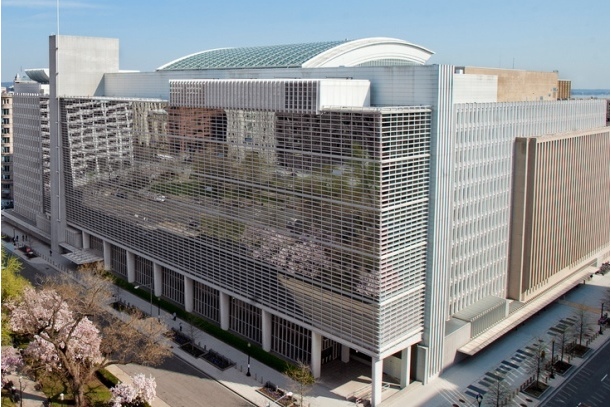Latest News
Remittances to Nigeria decrease by 9.5% to $19 billion on capital controls

News Highlight
Nigeria remained by far the largest recipient of remittances in Sub-Saharan Africa in 2016, followed by Ghana, Senegal, Kenya, Uganda, Mali, and South Africa.
The latest edition of the World Bank's Migration and Development Brief has shown that total remittance flows to Nigeria decreased from $21 billion in 2015, to an estimated $19 billion in 2016. The 9.5% decline in remittances was due to tighter capital controls and the foreign exchange policy of the Central Bank of Nigeria, according to the report, which was released on Friday during the World Bank’s Spring Meetings.
Remittances to Sub-Saharan Africa declined by 6.1% from $35.1 billion in 2015 to $33 billion last year, mostly due to weak growth performance in the region and the policy-related issues in Nigeria. The World Bank said the Nigerian exchange rate policy resulted to large black market premiums in the forex market, leading to a large part of formal remittances to be diverted to informal channels. The report said when the parallel market exchange rates are attractive, remittances are likely to be driven to unofficial channels.
Nevertheless, Nigeria remained by far the largest recipient of remittances in Sub-Saharan Africa in 2016, followed by Ghana ($2 billion), Senegal ($2 billion), Kenya ($1.7 billion), Uganda ($1.1 billion), Mali ($800 million), South Africa ($700 million), Liberia ($600 million), Ethiopia ($600 million) and Madagascar ($400 million). As a percentage of GDP, Liberia's remittances figure was 29.6% of the country’s GDP, while Nigeria's remittance figure was 4.6% of GDP.
The top five remittance recipients worldwide were India, China, the Philippines, Mexico, and Pakistan. Nigeria was the sixth largest recipient of remittances in the world last year.
The Migration and Remittance report, produced by the World Bank and Global Knowledge Partnership on Migration and Development (KNOMAD), also shows that global remittances, contracted by 1.2% to $575 billion in 2016, from $582 billion in the preceding year. The report says low oil prices, weak economic growth in the Gulf Cooperation Council (GCC) countries and Europe have impacted remittance flows. The decline in remittances, was also made worse by a weaker euro, British pound and Russian ruble against the U.S. dollar.
Remittances to developing countries decreased by 2.4% to an estimated $429 billion in 2016, from $440 billion recorded in 2015. The decline in remittance flows to developing countries continued for the second consecutive year. Such a trend has not been seen in the last 30 years, according to the report.
“Remittances are an important source of income for millions of families in developing countries. As such, a weakening of remittance flows can have a serious impact on the ability of families to get health care, education or proper nutrition,” said Rita Ramalho, Acting Director of the World Bank’s Global Indicators Group.
Remittances to the South Asia region declined by 6.4% to $110 billion last year; remittance flows to the Middle East and North Africa, decreased by 4.4%; while flows to Europe and Central Asia continued to be severely affected for a third year in a row, contracting by 4.6% to $38 billion in 2016. Remittances to the East Asia and Pacific region declined by an estimated 1.2%. Latin America and the Caribbean was the only region to see growth in remittances in 2016, growing by 6.9% to $73 billion.
However, in keeping with an improved global economic outlook, remittances to developing countries are expected to recover this year, growing by an estimated 3.3% to $444 billion in 2017, the World Bank said.
"Migration will almost certainly increase in the future due to large income gaps, widespread youth unemployment, ageing populations in many developed countries, climate change, fragility and conflict," said Dilip Ratha, lead author of the Brief and head of KNOMAD.
Related News
Latest Blogs
- Putting food at the centre of Nigeria’s health reform
- What is most important for Nigeria in 2026
- Restoring asset declaration as a tool of public accountability
- Tackling antibiotic resistance through safer food systems
- Big government, little governance
Most Popular News
- Artificial intelligence can help to reduce youth unemployment in Africa – ...
- NDIC pledges support towards financial system stability
- Global job quality stagnates despite resilient growth – ILO
- Afreximbank ends its credit rating relationship with Fitch
- MTN is named the best mobile Internet leader in Nigeria
- Cuts to donor funding threaten the right to health








